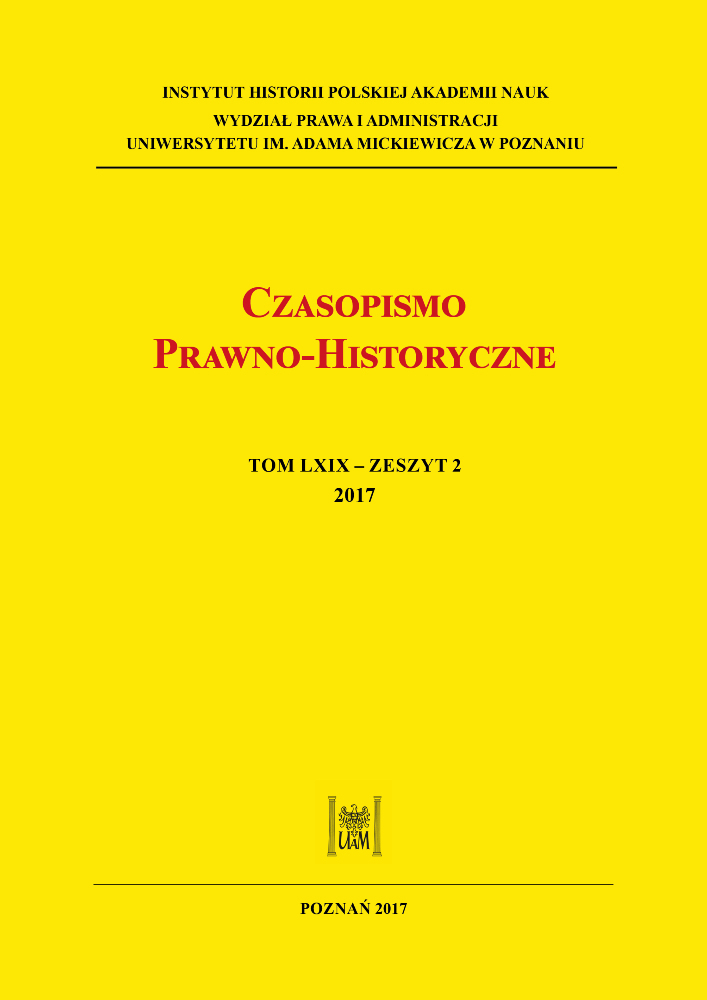Abstrakt
The article is devoted to the oaths related to the inauguration of the authorities in medieval Cracow. The paper is mainly based on Cracow’s two municipal codes: the Grabowski Codex (from the 14th and the 15th century) and the Balthasar Behem Codex (from the beginning of the 16th century).The oath played an enormous part in the legal and social relations in the Old Polish period. Cracow’s burghers took an oath of homage (Latin homagium) to every single Polish monarch. Moreover, the clerks, municipal workers and craftsmen yearly pledged their allegiance to the city and took a vow to diligently perform their professional duties. The Grabowski Codex contains oaths (Latin iuramenta) which were written down chaotically for about two centuries. Consequently, it allows one to follow even minor changes in the content of the vows which highlights the significance of the contents of the
oath themselves. On the other hand, the Balthasar Behem Code, which was a dignified book and a municipal insignia (Latin insignium), gathered the contemporary oaths in an orderly fashion. As a consequence, it outlines the hierarchy of the municipal clerks and institutions. This further emphasizes the huge importance of a municipal scribe whose oath is inscribed right after the pledge of the town council which was the main municipal institution in town. This paper also undertakes the topic of the elections of new people to perform various functions, pinpoints the dates of these nominations and it outlines the issue of the ceremonies which accompany them. At the same time, it emphasizes the splendour connected with the election of new members of the city council.
Licencja

Utwór dostępny jest na licencji Creative Commons Uznanie autorstwa – Użycie niekomercyjne – Bez utworów zależnych 4.0 Międzynarodowe.




